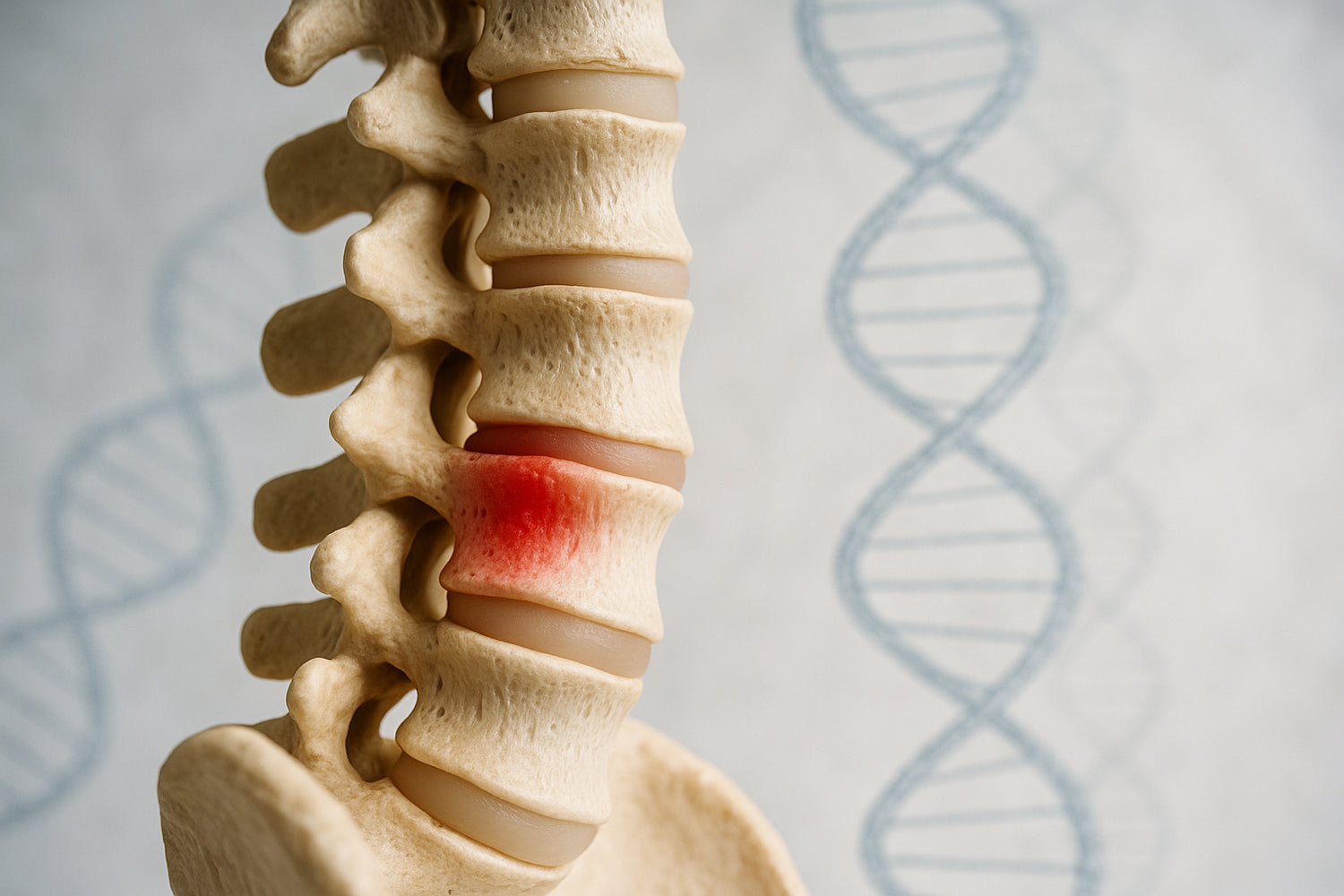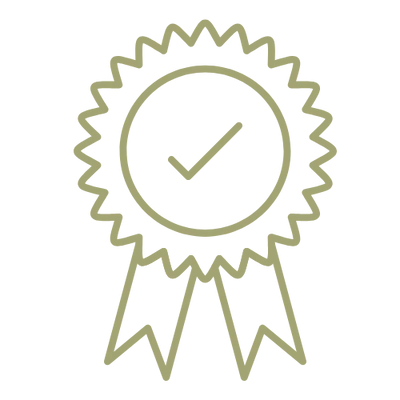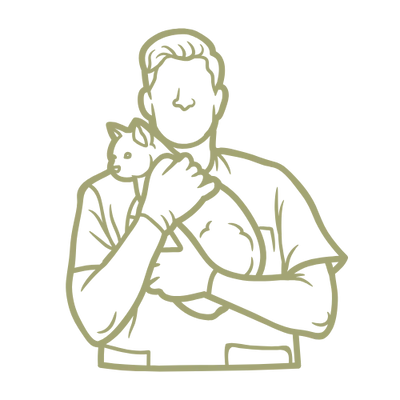Can a herniated disc be inherited? A growing number of studies suggest that genetic factors play a significant role in whether people develop problems with their intervertebral discs over the course of their lives. In this article, we take a comprehensive look at the genetic predisposition for herniated discs, analyze risk factors, and present measures for prevention and treatment.
How does a herniated disc occur?
A herniated disc, or disc prolapse, occurs when the inner nucleus of an intervertebral disc bulges outward due to a tear in the annulus fibrosus. This can lead to pain, numbness, or even paralysis if nerve roots are compressed. This most commonly affects the lumbar spine.
Causes and risk factors
Typical triggers are:
- Mechanical overload (e.g. heavy lifting)
- Degenerative processes (age-related)
- Lack of exercise and poor posture
But herniated discs can also occur without heavy physical exertion – this is where genetic predisposition comes into play.
What role do genetic factors play?
Research shows that hereditary factors can significantly increase the risk of a herniated disc. Certain gene variants have been identified that correlate with changes in disc tissue. This genetic predisposition often leads to accelerated disc degeneration—with or without external influence.
Which genetic changes are suspected?
- COL9A2: Influences collagen in intervertebral disc tissue
- VDR (vitamin D receptor): Inadequate nutrient utilization can promote structural weaknesses
- MMP gene family: Responsible for proteins that degrade the extracellular matrix, which can lead to instability
Comparison: Genetic vs. Lifestyle-Related Disc Herniation
| feature | Genetically determined | Lifestyle-related |
|---|---|---|
| Appear | Often at a young age | Usually from middle age |
| Course | Recurrent with familial clustering | One-off events more likely |
| Trigger | Often no clear cause | Mostly due to physical overload |
Can it be prevented despite genetic predisposition?
A positive genetic finding doesn't necessarily mean that a herniated disc is inevitable. Lifestyle remains a crucial factor. The following measures can have a preventative effect:
- Back-friendly movement patterns (e.g. correct lifting techniques)
- Regular exercise (e.g. swimming, yoga, targeted strength training)
- Normalization of body weight
- Targeted sports and wellness massages for muscle relaxation
Recommended treatment: Massage for disc problems
At the Bones Hands practice in Bochum, we support our clients with individually tailored sports and wellness massages that can provide relief from the muscular problems resulting from a herniated disc. Our massage team of professionally trained specialists specifically treats tension to relieve pressure on the affected areas.
Various massage options – tailored to your needs
- Sports/wellness massage for 75 €
- Hot stone massage for 75 €
- Woman-to-woman massage – exclusive offer for 75 €
Important: In case of severe symptoms, it is always advisable to consult an orthopedic surgeon or a specialist medical center first.
Practical example: Customer experience at Bones Hands
Melanie, 38, suffered from recurring back problems with a family history. Her medical diagnosis revealed early disc damage with no specific cause. She opted for regular treatments at Bones Hands . Through targeted back massages, she was able to permanently reduce her muscle tension and regain mobility.
"Without the massages, I probably would have had surgery today." – Melanie, client at Bones Hands
Make an appointment now or call us at +49 (0)234 91 52 63 70. We are also happy to answer your questions by email at info@boneshands.de or support@boneshands.de .
What to do at the first signs?
If the first symptoms occur, such as back pain or occasional tingling in the extremities, it is advisable to act quickly:
- Rest, but no complete restriction of movement
- Heat treatment and gentle mobilization
- Early massage treatments (e.g. back massage at Bones Hands )
Location & Opening Hours
Address: Herner Straße 299, Building C43, 44809 Bochum
Opening hours: Mon - Fri | 10:00 – 18:45
Conclusion: Genetics is not a determination, but an indication
While a genetic predisposition to a herniated disc increases the risk, it is not a given. Early prevention, sufficient exercise, healthy posture, and supportive therapies such as professional massage can significantly reduce the risk. At Bones Hands, we help you take the right path to back health.











Leave a comment
This site is protected by hCaptcha and the hCaptcha Privacy Policy and Terms of Service apply.